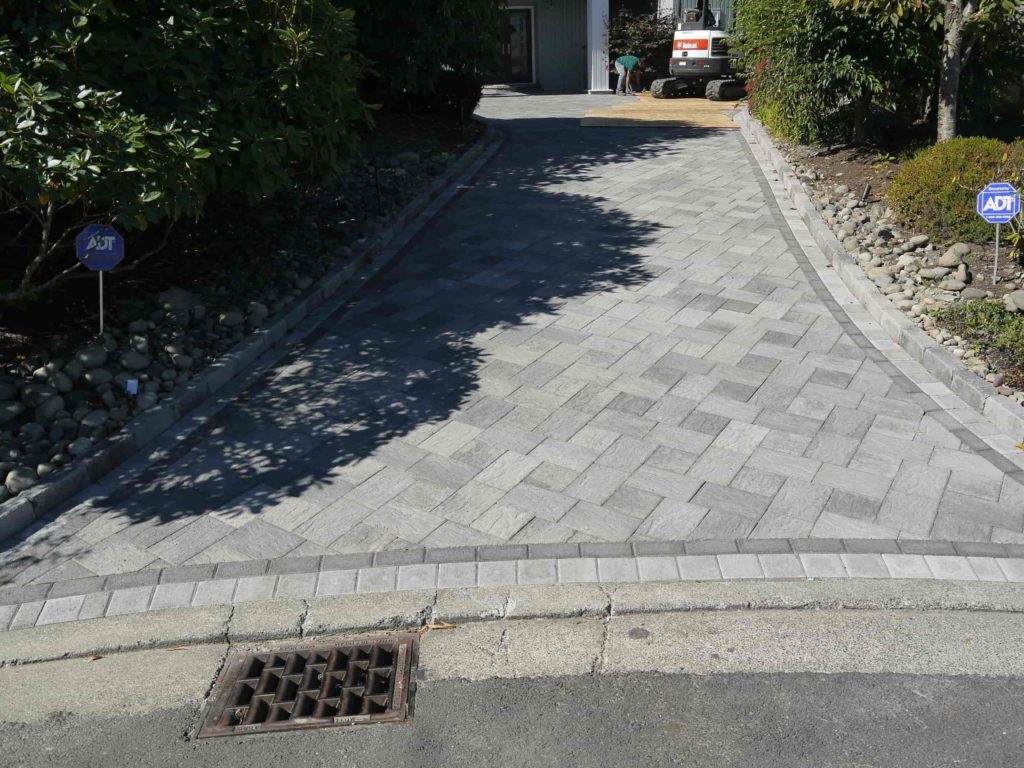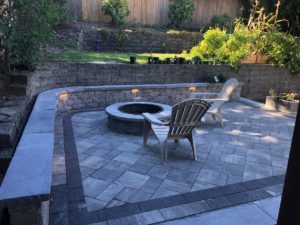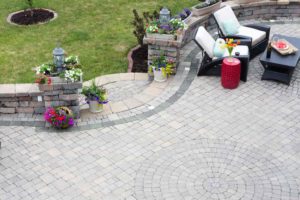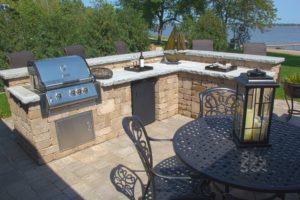
Whether you use them for your driveway or your patio, pavers bring a beautiful touch to your outdoor space. Not only are pavers very durable, they also bring an elegant and refined touch to your home. They upgrade your home instantly!
However, it is completely normal to have some questions about pavers. What do they do? How do they work? No need to worry, below we answer some of the frequently asked questions about pavers.
9 FAQs About Paver Driveways And Patios
What Are Pavers Made Of?
Pavers are a series of interlocking stones or bricks. They work by systematically placing them and locking them together without the use of liquid concrete. Gaps between pavers are filled up with sand or aggregate to seal the joints.
The most popular pavers you will find are made of concrete, natural stone, and brick or clay. Each different material has its own advantages and disadvantages. However, at the end of the day, choosing a paver material all boils down to personal taste and your home style.
What Are Pavers Used For?
Just like most building elements, you can use pavers for just about anything. A stretch of the imagination is all you need. However, we’ve compiled a list of the most common uses for pavers. These include driveways, walkways, patios, pool decks, retaining walls and outdoor kitchens.
What Natural Stones Are Used for Pavers?
You can find pavers made from various types of natural stone. Each has pros and cons so you want to do your research when considering natural stone pavers for your patio or driveway. For instance, darker pavers will absorb more heat so you may want to choose a light-colored option. Some also may be more durable than others.
Some of the different natural stone options are travertine, granite, slate, limestone, basalt, flagstone, and fieldstone.
Are Paver Driveways Or Patios Expensive To Install?
Wondering about the price when installing pavers? Many homeowners are, as the cost of paver installation normally ties in with home renovation costs.
The cost of paver installation largely depends on the area that is being paved. How large or difficult the area is will influence the cost of the pavers installed. Moreover, the type of paver material you choose will also largely influence your costs.
That being said, pavers are not outrageously expensive. If you are uncertain about the exact specific amount it will cost, contact us for a free estimate and design. We will be able to come and analyze the area you would like to use the paver for and give you an estimated idea of the price.
Do You Need To Seal Pavers?
We always recommend sealing paver patios and driveways. It extends the lifespan of the pavers significantly. It prevents fading, protects against weathering, locks the sand in the joints, and keeps dirt out.
If you’re investing in a beautiful paved driveway or patio, you want it to last. So, you should apply sealant every 3 – 4 years.
Will Weeds Grow In Between The Paver Joints?
Because there are joints in between the pavers, it may leave some spaces open for weeds to grow.
Luckily, there are ways to stop this from happening. For example, you could use poly-sand to prevent the growth of weeds and other debris.
Poly-sand also helps to strengthen the joints of the pavers. It consists of additives that, when wet, create a binding agent to strengthen the joints. This becomes hard and therefore prevents weeds from growing.
Do Pavers Need To Be Level?
While you may think your driveway or patio should be completely level, the answer is actually ‘no’. It should tilt to one side slightly to allow for proper drainage. However, your paver driveway or patio will appear level.
What Are Some Advantages of Paver Hardscaping?
One of the biggest advantages is the fact that they can be adjusted to fit the look and feel of your home.
Moreover, they require minimal upkeep. If a paver is damaged, you simply take out that paver and replace it with a new one. This allows them to be durable and really lets you get the best value for money.
Not only do these reduce your yard maintenance needs, but pavers are eco-friendly.
Should Pavers Move?
Yes, pavers shift and flex over time, which is why they do not crack like solid concrete. Their movability also comes in handy if one breaks or if tree roots start to displace them. You can simply pick them up, remove the roots, and place the paver stones back down again.
Final Thoughts
Whether you choose to go with brick, concrete, or natural stone. Paver driveways and patios can increase your curb appeal and the overall value of your home. Contact Seattle Outdoor Spaces for more information.





